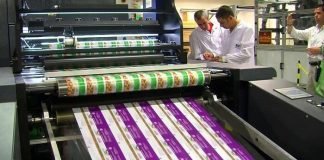Pelican BioThermal LLC has expanded the range of its temperature-controlled packaging to meet the extremely cold requirements for some Covid-19 vaccines.
BioThermal’s reusable Cr?do cubes could previously reach temperatures of minus-20 and minus-50 degrees Celsius. Now the Plymouth-based company’s packaging covers temperatures of minus-20, minus-35, minus-50 and minus-80 degrees Celsius, according to a press release issued recently.
“We know that pharmaceutical companies are in all phases of the development process for vaccines and therapeutics and working tirelessly to bring safe and effective drug products to market quickly,” said Greg Wheatley, vice president of worldwide new product development and engineering at Pelican BioThermal in a press release. “Our engineering team matched this urgency to ensure they have the correct temperature-controlled packaging to meet them where they’re at in drug development for the pandemic recovery, from discovery to distribution.”
The Wall Street Journal reports on the safety problems shipping millions of doses of the vaccine is posing for airlines. Because dry ice breaks down into a gas over time, it’s considered a dangerous good by the International Civil Aviation Organization and the U.S. Department of Transportation.
Therefore, certain ventilated packages that allow the gas to release are required to move the vaccines.
Pelican BioThermal’s deep frozen products use industrial ice packs or dry ice systems to protect frozen shipments from three to six days. Pelican said its lineup is ideal for short-term vaccine storage, moving vaccines from freezer hubs to immunization sites and daily replenishment to remote and rural areas.
Adam Tetz, director of worldwide marketing at Pelican BioThermal, said the company has kept up with increased demand by hiring more temporary and permanent staff and adding a second shift at its production facilities in the U.S. and U.K.
Tetz said Pelican’s primary customers have been pharmaceutical manufacturers, contract manufacturers and third-party logistics companies that will transport the finished vaccines to hospitals and clinics.
“The recipients of the packaging must understand the cold chain better than before, due to frozen temperatures required for some vaccines,” Tetz said in an emailed statement. “Our shippers (thermal packages) arrive in clinics, hospitals and the sure-to-come pop-up vaccination centers, and they may have permanent mechanical equipment or they may use our shippers as temporary cold chain storage while out in the field for a day or two.”
























